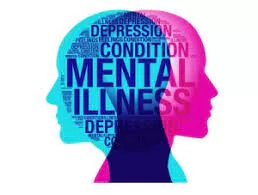New Delhi – Addressing mental health needs and reducing stigma is crucial for the well-being and development of adolescents, said psychology experts at a recent event held in the national capital.
Adolescence is a critical period marked by rapid physical, psychological, and social changes, often leading to significant stress. Various studies indicate that stress among adolescents is on the rise, posing a substantial threat to their mental health and overall well-being.
This stress is influenced by both biological factors, such as brain development and hormonal changes, and behavioral aspects like bullying, coping skills, and resilience. Experts emphasized that mental health support and intervention strategies are essential to help adolescents navigate these challenges.
The Lasting Impact of Bullying
“The effects of bullying leave scars far beyond visible and have long-lasting impacts on mental health. Many who experience bullying struggle with anxiety, depression, low self-esteem, and even thoughts of self-harm,” said Prof. Rajesh Sagar, Professor of Psychiatry at AIIMS New Delhi.
He further stressed the need for a collective effort from researchers, educators, and health professionals to foster resilience and create safer environments for adolescents. Addressing these issues, he noted, is fundamental to ensuring a healthier and more stable future for young individuals.
Policy Recommendations for Adolescent Mental Health
The event focused on shaping policy recommendations and intervention strategies aimed at improving adolescent mental health in India. It underscored the importance of equipping adolescents with essential life skills to enhance their resilience against psychological stressors.
Prof. Pallab Maulik, Director of Research at The George Institute for Global Health India, highlighted India’s massive adolescent population and the necessity of prioritizing their mental health. “India is home to more than 250 million adolescents. For the better health of the nation, it is imperative that we take all steps necessary to improve the psychological well-being of these future adults who will lead the country in the coming decades,” he said.
Technology’s Role in Mental Health
Another key discussion point was the role of technology and social media in adolescent mental health. Experts acknowledged the potential of digital platforms to provide support and resources while also cautioning against the risks associated with excessive or harmful online engagement. Balancing healthy technology use was emphasized as a crucial step toward fostering positive mental health outcomes among adolescents.
Early Diagnosis and Awareness
At another event in New Delhi, Dr. Pratima Murthy, Director of NIMHANS, stressed the need for increased awareness and early diagnosis of mental health disorders. She pointed out that “one in ten people suffer from a diagnosable mental disorder,” emphasizing that mental health conditions should be treated like any other health disorder. Advances in genetics and brain imaging, she noted, can significantly aid in improving mental health treatment and outcomes.
Disclaimer: This article is based on expert opinions and ongoing research. It is not a substitute for professional medical advice. If you or someone you know is struggling with mental health issues, please seek support from a qualified professional.












